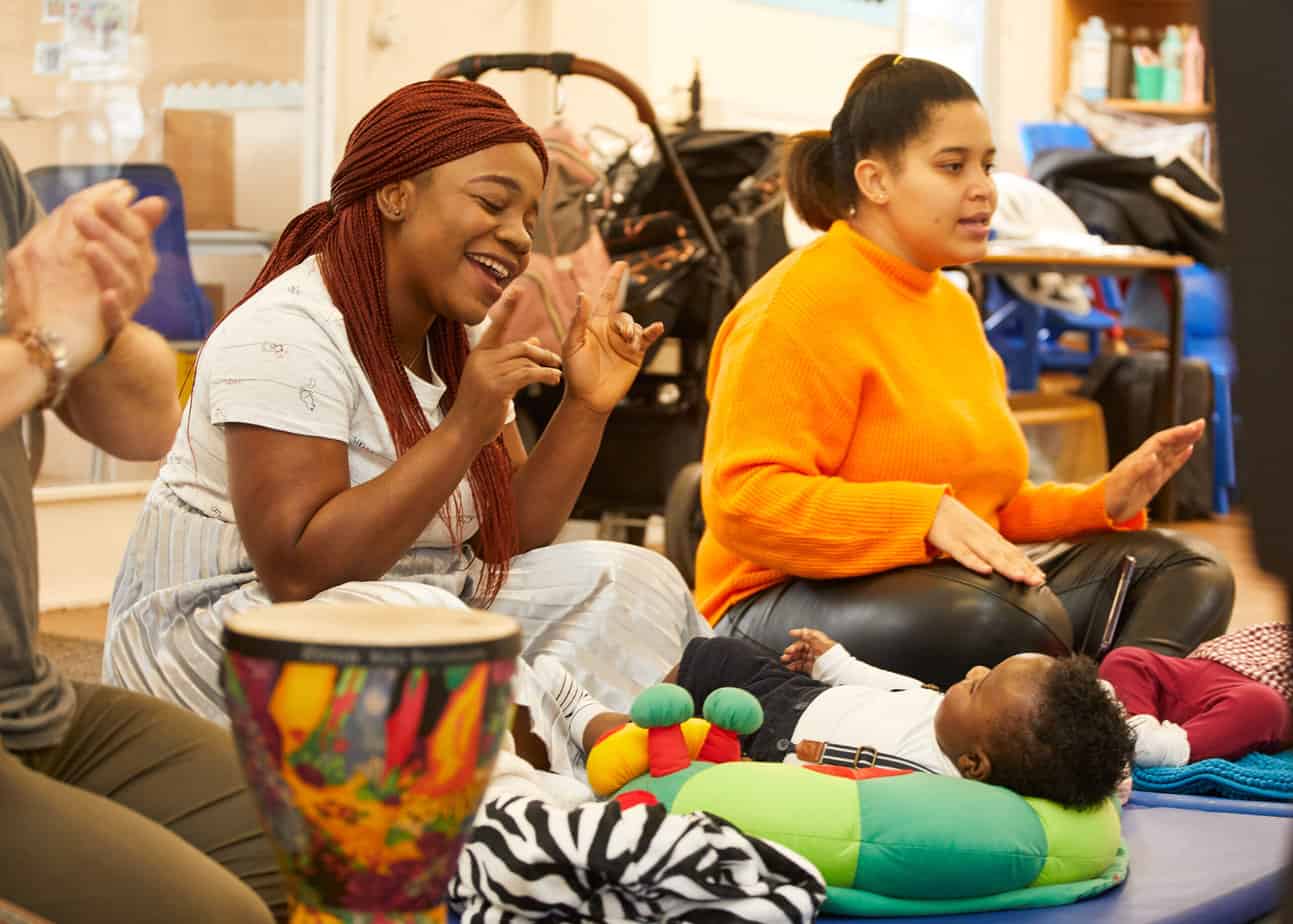The Fourth Trimester
Abbie Tomson
BSc (Hons) Midwifery
Midwife
All4birth Lead
Instagram @all4birth

Summary
The fourth trimester refers to the postnatal period, often referred to as the first 12 weeks of a baby’s life. During this time, you adjust to life with your new baby, becoming a mother and navigating everything new that comes with this! This factsheet provides you with an outline of this trimester and how you can prepare for this period!
What is the fourth trimester?
Most people have heard of the three trimesters of pregnancy, but more commonly, we’re referring to the postnatal period as the ‘fourth trimester’. The fourth trimester is the period after birth where you are adjusting to life with your new baby; various ‘time scales’ exist, but the general consensus is the first three months of a baby’s life- similar in length to the other trimesters.
Many find it helpful to have an app on their phone to track this period as their baby grows and changes- a fantastic app is the ‘Baby Buddy‘ app, created by the Best Beginnings Charity, which guides you through pregnancy and into the baby’s first year.
How the fourth trimester is observed in various cultures:
There is an institution of fourth-trimester care that dates back centuries and occurs across the globe. In many cultures, it is almost a protocol for caring for the new mother by unburdening responsibility and ensuring they rest, eat well and has all the support they need to recover. There are so many examples of this across the globe, with some traditions becoming more popular in recent years. ‘The First Forty Days’ by Heng Ou is a great book to learn more about various cultures’ traditions.
Preparing for the fourth trimester
If you’re someone who likes ‘to do (like myself), then suggesting things you can do around the house in the third trimester may be useful to feel that you’re ‘doing’ something to help yourself once the baby is here. Some examples are:
- Stocking your cupboards- particularly with anything you frequently use, to save yourself or a support person needing to go out for toilet roll, sanitary pads, drinks etc.!
- Freezer meals- things such as soups, bone broths, full meals etc., are all great examples of easy food to eat when the baby is here that will still provide you with many nutrients!
- Creating ‘nests’ around your house- this could be a super useful bedside table that is stocked with pain relief, supplies for the baby, a torch, breastfeeding supplies or alternatively, your favourite spot on the sofa having a basket nearby with similar items to allow you to sit and cosy with your newborn. Of course, each baby can be so different, as each postnatal journey, and therefore this may be a basket that is edited heavily to suit your needs once the baby is here!
- Discuss expectations with your support person/family: the last thing you want is too much confrontation after you’ve had your baby, and equally, if you’re like me, you find it difficult to ask for help! Having a discussion with your support person and any family who are likely to be very keen to visit about what you may find helpful when they visit rather than just holding your baby! This includes building a support system of people and practising setting boundaries
- Reading- I’d recommend fantastic books: ‘The First Forty Days’ by Heng Ou and ‘The Postnatal Depletion Cure’ by Oscar Serrallach. Both of these are easily readable in terms of length and packed full of information about nutrition and evidence-based support.
Looking after yourself
Having a new baby is an exciting but also potentially scary time, particularly if they’re your first baby or you had a traumatic birth experience. It is vital you use your support network, and if you feel that you need additional support, you seek advice from your midwife, who can direct you towards support in your local area. We have also shared some fantastic posts on All4Birth about being a new parent and about the first two weeks- the links below will take you to these:
Coping with low mood and the demands of being a new parent
The First Fortnight: Simple rhythms (part 1 of 4)
The First Fortnight: Make yourself a priority (part 2 of 4)
The First Fortnight: The first greeting and night at home (part 3 of 4)
The First Fortnight: Old habits and new alternatives (part 4 of 4)
How did you prepare for the fourth trimester? Is there a cultural tradition you followed or have knowledge of? We would love to share these on All4birth!
Links to resources
 Books
Books
Brain Health from Birth: Nurturing Brain Development During Pregnancy and the First Year by Rebecca Fett
Real Food for Pregnancy by Lily Nichols
The First Forty Days by Heng Ou
Postnatal Depletion Cure by Oscar Serrallach


















